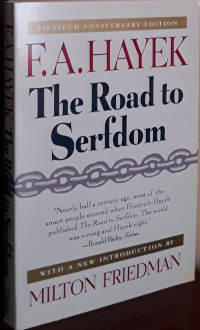
Henry Hazlitt died on July 8, 1993, just sixteen months short of his one hundredth birthday.
Word spread quickly not just across the U.S., but internationally as well, for Hazlitt's role in helping to revive classical liberalism and libertarianism, in promoting capitalism and opposing socialism, had earned him the respect of students and admirers all across the world.
By any standard, he lived one hell of a life. Journalist, author, literary critic, reviewer, editor, economist, moral philosopher, and one of the premier intellectual entrepreneurs for liberty of the twentieth century.
It was a life full of zest and accomplishment. It was, moreover, one marked by unquestioned integrity, tireless energy, and tenacious dedication to his god of individual liberty.
Henry Hazlitt was one of the great autodidacts of his time, influencing countless people with his writings on a vast number of subjects. Although he once said that his early gods were the philosophers William James and Herbert Spencer, hardly historic figures when Hazlitt was born, he pursued from the first a career as a writer that would center on journalism for the rest of his life. Among many other high-profile jobs, he spent a year as successor to H.L. Mencken at The American Mercury; Mencken lauded him as "one of the few economists in history who can really write."
As is so often the case, however, Hazlitt's formal career tells only part of the story. From the 1930s on, he was a centerpiece in the burgeoning revival of classical liberal and free market thought, and was active in every way imaginable. He helped to bring together the group of activists, intellectuals and scholars who helped form the base of the Foundation for Economic Education in 1946, and the Mont Pelerin Society two years later. He was friendly with every major figure in the birth of the modern libertarian movement, from Ayn Rand to Leonard Read.
 He introduced the work of both Ludwig von Mises and F.A. Hayek to an American audience through powerful book reviews of Mises's Socialism and Hayek's The Road to Serfdom in the New York Times Book Review, the latter on page one, heralding both as modern classics, and gaining an early enthusiastic audience for the two Austrian emigreés.
He introduced the work of both Ludwig von Mises and F.A. Hayek to an American audience through powerful book reviews of Mises's Socialism and Hayek's The Road to Serfdom in the New York Times Book Review, the latter on page one, heralding both as modern classics, and gaining an early enthusiastic audience for the two Austrian emigreés.
His 1946 work Economics in One Lesson, teaching the basic principles of the free market and blasting through statist fallacies, became a runaway bestseller, and the first of no less than five books that he was either to write or edit that would stand as modern classics. Even today, forty-seven years after its initial publication, this book still serves as perhaps the best introduction to sound economic thinking ever penned.
All in all, Henry Hazlitt did as much as anyone of his time to promote the ideas of freedom. He stood the course, fought for his ideals, and influenced the world he lived in to change it for the better.
Copyright © 2000, The Daily Objectivist - Reprinted with permission of The Daily Objectivist and Davidmbrown.com.
12 Jan 2009 (last edit: 16 Jan 2024)
You can assist the work of Freedom Circle by purchasing one of the works discussed above:
-
Roy A. Childs, Jr., "Henry Hazlitt, R.I.P.", August 1993. (Freedom Circle note) ↩︎
